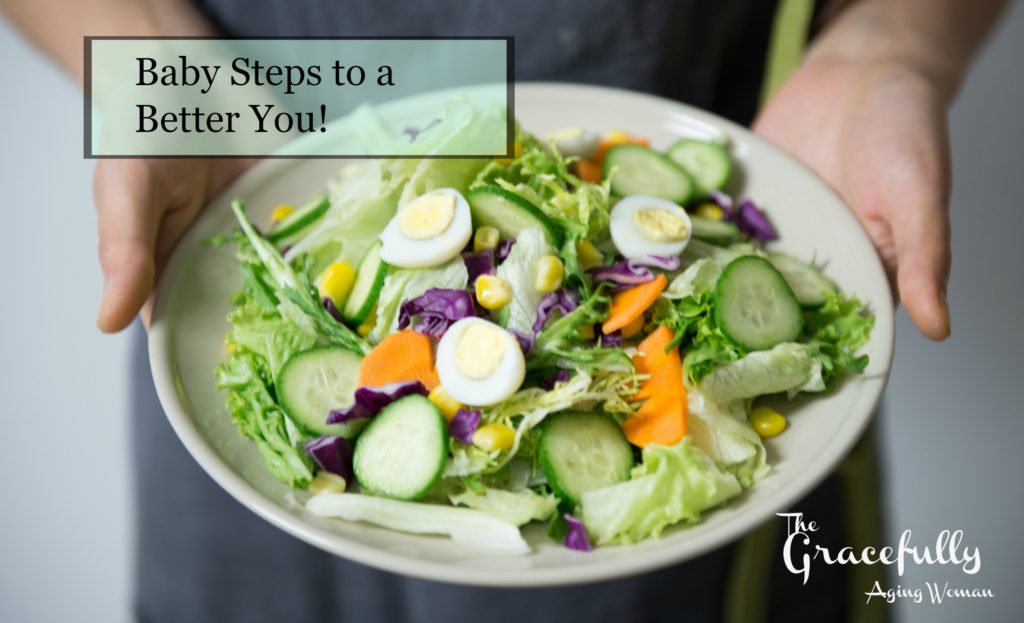Small Changes Make a Big Difference
We all want to feel good. None of us would consciously choose to be unhealthy, achy, overweight, arthritic, diabetic, or otherwise unwell.
But how many of us realize that good health and poor health alike are made up of little habits. And because they are just little habits, they are easy to do — and easy not to do.
The first step in making any kind of change is wanting it. As Seneca, the great Roman philosopher once said it, “The wish for healing has always been half of health.” In other words, you will only find good health by seeking it.
However, with all the crazy health fads, doctor recommendations and seemingly contrary advice from every direction, where does one begin? It is not nearly as confusing as it might seem. Most experts agree on a few key ingredients that go into making up good health. And they are not that difficult to incorporate into one’s life.
Listed below are five strategic habits that can set your feet on the path to feeling good.

Habit #1: Eat more fresh fruits and vegetables.
Many people focus more on what not to do so they begin the whole process of getting healthy on the wrong foot. Instead of immediately worrying about what you shouldn’t be eating, begin by adding what everyone agrees is vital to good health. Whether you are vegan, paleo, low carb or simply following the government’s nutritional recommendations, all agree that Americans do not eat enough fruits and vegetables.
You might be tempted to focus on fruit, but veggies are key. They are low in sugars, high in fiber and high in nutrients.
If, like so many others, you never really learned to like your vegetables, begin by hiding them to smoothies, blended and added to spaghetti sauce or blended soups. Another trick is to roast your veggies. The roasting process brings out the flavor and even the sweetness of vegetables that are missed in other forms of cooking.
How much is a good target? General guidelines are 5-9 servings per day. A good goal to work towards would be half your plate in fruits and vegetables. But if that seems like too much to start with, try adding at least one serving of fresh fruit or veggies to each meal and at least one snack incorporating a fruit or veggie. Not canned or dried.
By adding more fruits and vegetables you will feel more full with fewer calories, get more vitamins, minerals and micronutrients into your body and stabilize your blood sugar better, making it less likely to have that mid-morning or afternoon crash.
Habit #2: Drink more water.
Are you tired of hearing that yet? It’s true, getting enough water is essential to feeling good. Water is used in almost every process in the body.
The Institute of Medicine recommends that women get about 12 cups of water per day and men about 15 cups per day. Another simple equation that some use is to drink half of your body weight in ounces. That may seem impossible, but this number includes things like broth from soups, smoothies, milk, and tea.
Remember, NOT included in this number is coffee and alcohol, which are diuretics and can rob you of fluid.
Did you know that according to the Center for Science in the Public Interest, Americans on average drink the equivalent of eight 12 ounce cans of soda per week? That number doesn’t even touch the sugary coffees or energy drinks consumed.
An easy way to make plain water more palatable for those used to sugary drinks is to add some lemon juice and maybe a bit of stevia (a non-caloric sweet herb) to each glass.
Since drinking more water may not come naturally, a simple reminder might be needed. A timer can be set on the phone, or a sheet of paper put on the fridge with tally marks might help.
Some signs of slight dehydration are a headache, fatigue, dry skin, blurry eyes, food cravings (especially sweets), brain fog, and dry mouth. Don’t wait for signs to appear before drinking up.
Habit #3: Move more.
You knew it was coming, didn’t you? Most of us really need to move more. Not just working out at the gym or even going for a walk. We all need to be getting up out of our chairs and moving a bit before sitting back down. Studies are showing that being sedentary, that is sitting a lot, contributes to a greater risk of type II diabetes, cardiovascular disease, and obesity.
Regular movement is vital for overall health. Getting up for a few minutes every 15-20 minutes can help regulate blood sugar and improve overall circulation.
As great as going to the gym might be, it isn’t necessary to improve overall health. Brisk walking for just 30-40 minutes a day, five days a week has been shown to lower your risk of high blood pressure, high cholesterol, and diabetes. On top of that, the 30 to 40 minutes can be done in 10-minute sessions and still have the same benefit.
More intense exercise is great, but it is far better to just get moving than wait until you are ready to begin a whole workout routine.
What does this look like? It can be as simple as going for a 30-40 minute brisk walk around your neighborhood before or after work. Let the kids ride their bikes along with you.
OR, break it up into 10-20 minute walks at lunchtime, walk in place while watching T.V., or climb the stairs instead of taking the elevator. Some people suggest shooting for 10,000 steps in a day. This is easy to track with a Fitbit, Apple watch or even your smartphone.
As the old Nike ad use to tell us, “Just do it!”
Habit #4: Get a good night’s sleep.
Here is the deal: when you get a good night’s sleep and feel rested, you will have more energy to exercise, you will have fewer cravings, and you won’t need as much coffee to get and keep you going. Sleep, or the lack thereof, will impact all of your other efforts to establish and maintain healthy routines.
7-9 hours per night is your target. If you think you have too much to do to sleep that long each night, just remember that when you are well rested you tend to think more clearly and get more done more efficiently.

Having trouble getting to sleep? Try creating a nightly routine that gets you ready. Turn off the screens an hour before bed. This begins to tell your brain it is time to sleep. Sip some caffeine free tea. Take a warm bath or curl up with a good, but not too good of a book that you are hooked.
If you have too much on your mind do a brain dump by writing your thoughts, ideas, and to-do’s on a paper, then forget it for the night.
Remember, what you do earlier in the day can affect your sleep at night. Getting that movement in earlier in the day actually helps you sleep better at night. If sleep is a problem cut yourself off from caffeine by mid-day. Also, that late night glass of wine that helps you relax, well, it can also hinder proper sleep by causing blood sugar issues and dehydration.
As Benjamin Franklin so aptly put it, “Early to bed and early to rise makes a man healthy, wealthy, and wise.”
Habit #5: Cut out the prepackaged food and eat at home.
Not ready to go “all natural and organic?” Try starting by cutting back on or eliminating prepackaged foods. All kinds of things lurk in those sealed up bags and boxes. They tend to be filled with extra calories from sugar and fat, preservatives and additives, and high sodium content.
If you don’t know where to start, you might want to try a food service that makes eating at home easier. Services like Hello Fresh, Sun Basket, and Blue Apron are making dining in a possibility for many who are really short on time or just need a good nudge in the right direction.
Snacks can be hard. Hunger hits at work and the vending machine is easy. But so is throwing some nuts or trail mix in a bag. Or, bring an apple with a pouch of peanut butter. If you like to bake, try whipping up some homemade granola bars, or even some muffins. Most homemade recipes will be far healthier than what you can find in the store.
Even if you insist on eating your cake and having your frosting too, you will be better off making it from scratch than from a box. Not only that, you will probably make it less often as well.
By making your own meals, snacks, and desserts, you can control the amounts of sugar. You can eliminate preservatives. And when you are ready, you can begin making healthier switches, like whole grains for white flour or organic produce for at least the dirty dozen.
Finally, remember, health comes from a lifetime of living and so does poor health. Change is not always easy. There are those that love to jump into something new, but for many of us, we have to take baby steps. And THAT IS JUST FINE. Make one new habit at a time.
And change your life for the better, one new habit at a time.




